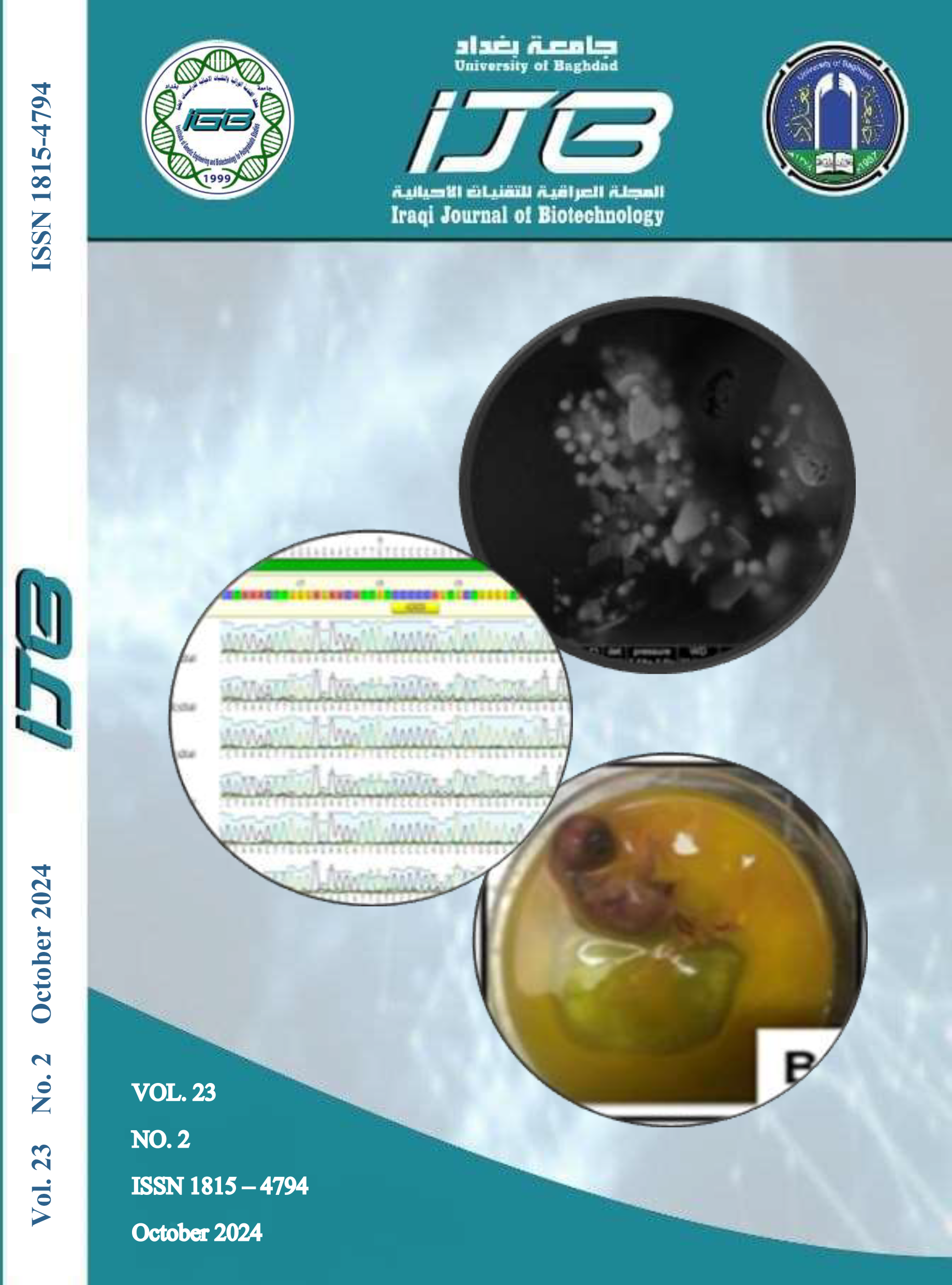Isolation, Identification of Escherichia coli and Haematological Study for Iraqi Woman with Acute UTI
Abstract
Urinary tract infection is one of the most common infections worldwide, especially in women, caused by different types of microbial agents. The purpose of this study was to focusing on infection of gram negative bacteria , haematological parameter and renal function in Iraqi women with acute UTI. Setting and design: 1-Sample collection from women with uti infection, 2- determine acute uti cases, 3-isoulation and identification of bacterial infection, 4- investigation for complete blood picture, 5- study renal function. A total of 220 samples (blood, serum and urine from the same case) were collected which included 120 samples that infected with UTI with mean age of (30-60) years old, in addition a 100 samples as controls were collected from healthy individuals. Morphological characteristics and biochemical tests were determined for acute women samples closely related to gram-negative bacteria that included microbiology that cultured on MaConky and EMB agar and examined by microscopic. The biochemical test included in this study were (Indole, Methyl-red, Voges-Proskauer, Citrate, Oxidase, Catalase), then used Api and Vitik for detected gram negative bacteria that presented. Finally used 16s rRNA for detection of E.coli bacteria. Evaluation clinical biomarkers were determined for women samples includes WBC,TYM, platelets, MPV, CRP, Urea, creatinin and BUN. Statistical analysis used: The statistical package for social sciences (SPSS) application was used to observe the effects of various factors in research parameters. Least significant difference (LSD) test (ANOVA) or T-test was rummage-sale to significant compare among means. The results showed that 100 isolates gave typical phenotypic characteristics and biochemical tests as gram negative bacteria, that divided to the genus Escherichia coli was 96(80%), Klepsiala was 15(13%), Enterobacterasea was 15(13%) and Protease was 4(3%). Also confirmed the result for E.coli bacteria by using 16srRNA. Clinical biomarkers were determined for all women samples that infected with UTI, the most common hematology and renal tests that studied in UTI infection women were WBC, MPV, LYM, PLT, CRP, Urea, BUN and Creatinine then compared with their levels in healthy control group. The results showed that there were significant increasing (p-value ≤ 0.05) in WBC, MPV and BUN, while there were non-significant increasing (p-value ≥ 0.05) in LYM, PLT, CRP, urea, Creatinine. It was concluded that many etiology that lead to UTI infection in women, it may be includes gram-negetive bacteria, gram-positive bacteria and fungi. The most causative agent of UTI infection was gram-negative bacteria, also haematological and renal function test may be good tool for diagnosis of acute UTI infection.


